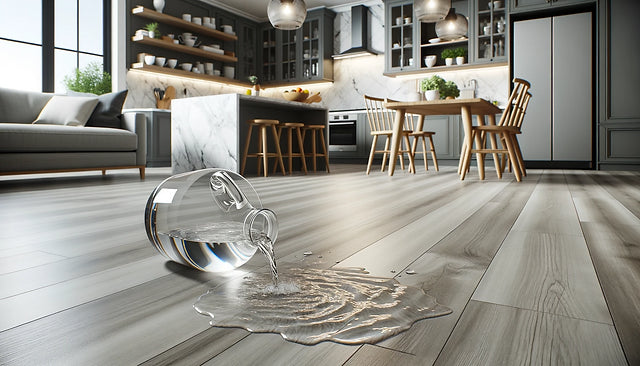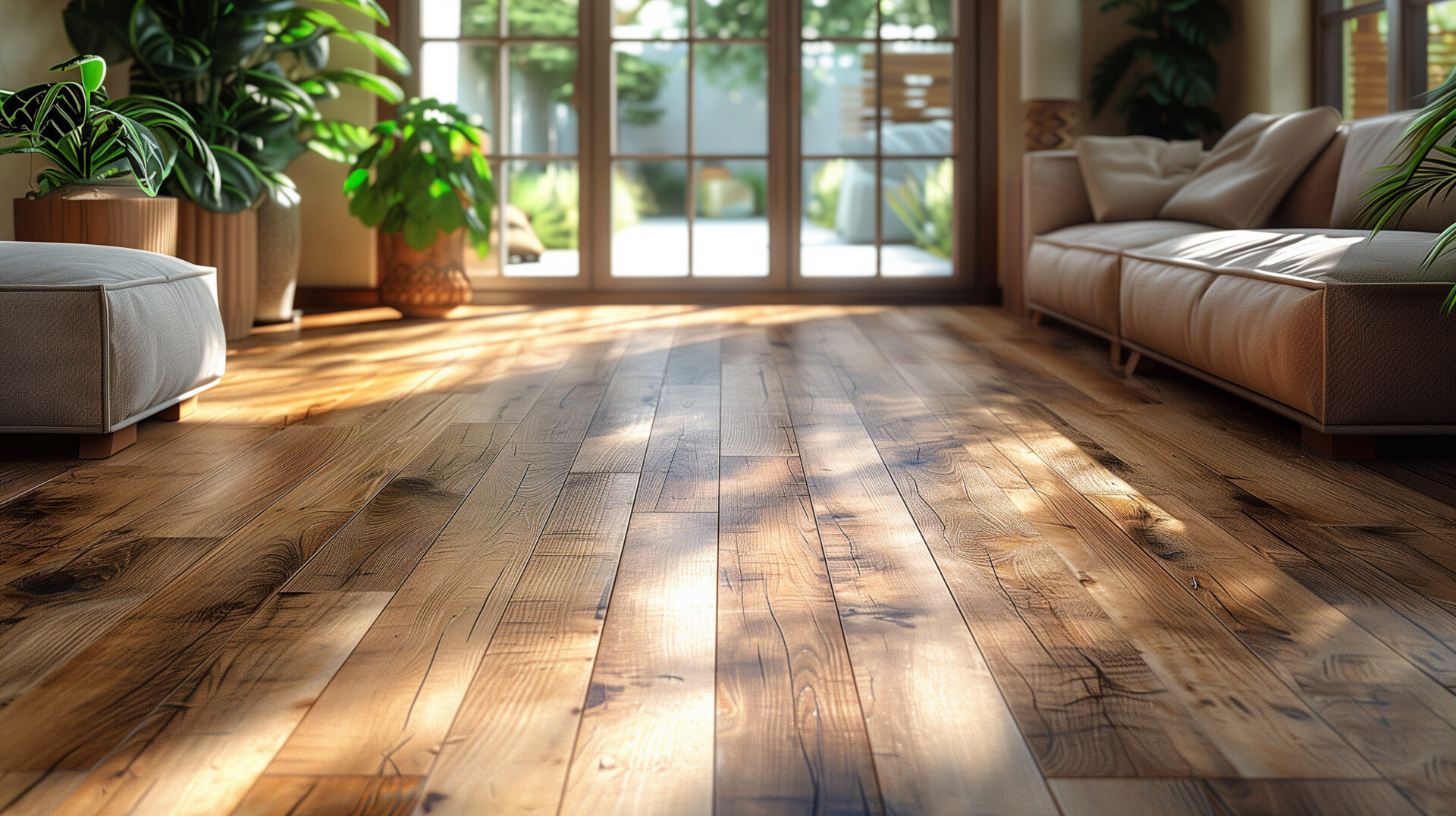When it comes to choosing flooring, one common question that pops up is: “Should I go for water-resistant or waterproof flooring?” At first glance, these terms might sound the same, but trust me—they’re not. Understanding the difference can save you from a lot of headaches, especially if you’re dealing with areas like kitchens, bathrooms, or basements. So, let’s dive into this watery topic, and I’ll try to keep it fun and easy to understand.
What is Water-Resistant Flooring?
Let’s start with water-resistant flooring. This type of flooring is like your favorite jacket that keeps you dry during light rain but won’t survive a full-blown storm. Water-resistant flooring can handle spills and splashes without getting damaged—as long as you clean it up quickly. It’s great for places like living rooms, bedrooms, or dining areas where water exposure is minimal.
One popular option for water-resistant flooring is PVC Flooring, which is a champ when it comes to repelling water for short periods. However, PVC flooring is not invincible! If water stays on it for too long, it can seep through the seams and cause damage. So, think of water-resistant flooring as a short-term solution to minor water accidents rather than a shield against floods. https://housewiseup.com/ breaks down the key distinctions between water-resistant and waterproof flooring to help you make an informed decision for your next project.
What is Waterproof Flooring?

Now, waterproof flooring is the real superhero of the flooring world. Imagine wearing a scuba suit—that’s how this flooring deals with water. It’s designed to completely block water from seeping in, making it ideal for areas that face constant moisture or spills, like bathrooms, laundry rooms, or basements that might flood once in a while (hopefully not too often).
Waterproof flooring materials often include options like vinyl, ceramic tiles, and luxury vinyl planks (LVP). These materials are made to resist water over long periods, giving you peace of mind. Whether you spill a glass of juice or leave a puddle after a bath, waterproof flooring isn’t going to blink an eye.
Key Differences Between Water-Resistant and Waterproof Flooring
- Duration of Protection
Water-resistant flooring only holds up for a limited time, while waterproof flooring provides long-lasting protection against water. This means if you’re the kind of person who spills coffee and forgets to wipe it up immediately (guilty!), waterproof flooring is your best bet. - Ideal Locations
Water-resistant flooring is perfect for low-moisture areas. For example, PVC flooring works well in offices or bedrooms where spills are rare. On the other hand, waterproof flooring is perfect for high-moisture areas like kitchens and bathrooms where water is practically part of the decor. - Material Difference
Water-resistant flooring usually has a surface coating that repels water, while waterproof flooring is made entirely from materials that don’t absorb water at all. Think of it like rain boots versus flip-flops on a rainy day.
Why Should You Care About the Difference?
Here’s the thing: choosing the wrong flooring for your space can lead to costly repairs and a lot of frustration. Imagine putting water-resistant flooring in your bathroom and finding it damaged after a year of steamy showers. That would be a disaster! On the flip side, installing waterproof flooring in your bedroom might be overkill unless you’re expecting a flood.
Knowing the difference helps you make the right choice for your lifestyle and budget. And hey, who doesn’t want to be a smart shopper?
Common Misconceptions About Water-Resistant and Waterproof Flooring

- “They’re the Same Thing!”
Nope, not at all. Water-resistant and waterproof flooring serve different purposes, so don’t confuse them. - “Waterproof Flooring is Too Expensive.”
While it’s true that waterproof flooring can cost more upfront, it can save you money in the long run by preventing water damage. Plus, there are affordable options like waterproof vinyl planks that don’t break the bank. - “All PVC Flooring is Waterproof.”
Wrong again! PVC flooring is water-resistant, not waterproof. It’s a great option for areas with occasional spills but not for spaces with constant exposure to water.
How to Choose the Right Flooring for Your Needs
Here’s a quick guide to help you decide:
- If you’re clumsy like me and spill drinks a lot: Go for waterproof flooring.
- If you want affordable and stylish flooring for low-moisture areas: Water-resistant options like PVC flooring are perfect.
- If you’re working on a budget but need durability: Consider waterproof vinyl or laminate.
Final Thoughts
So, there you have it! Water-resistant flooring is good for light spills and dry environments, while waterproof flooring is built for the big leagues, dealing with moisture and water like a pro. Choosing the right flooring depends on where you’re planning to install it and how much water it’s likely to face.
And remember, no matter how “resistant” or “proof” your flooring is, it’s always a good idea to clean up spills quickly to keep things looking great. Unless, of course, you want to test just how waterproof your waterproof flooring really is (spoiler alert: not a good idea).
Happy flooring, and may your floors always stay dry! 😊

Leave a Reply